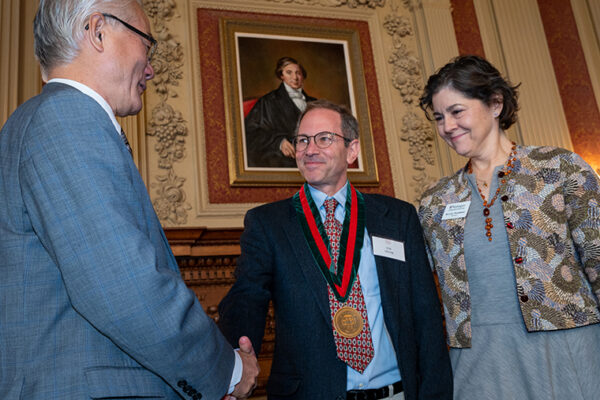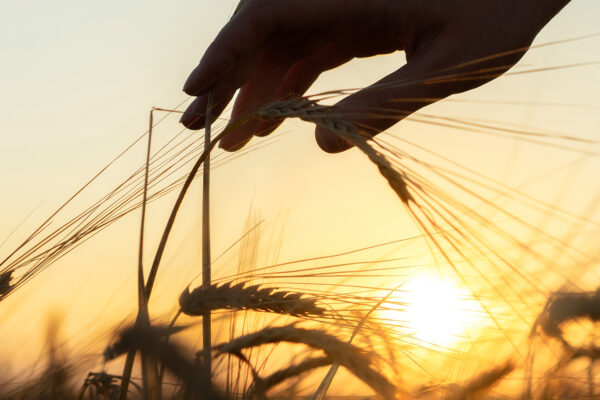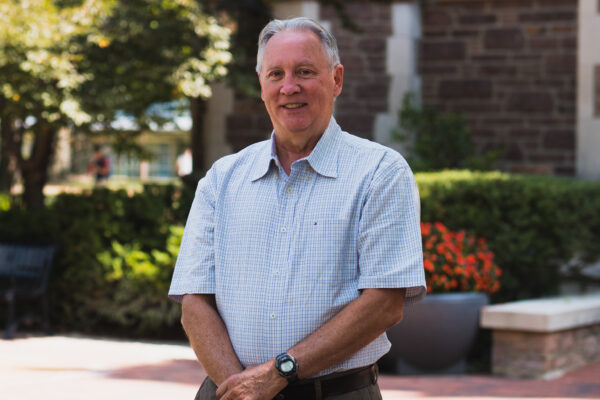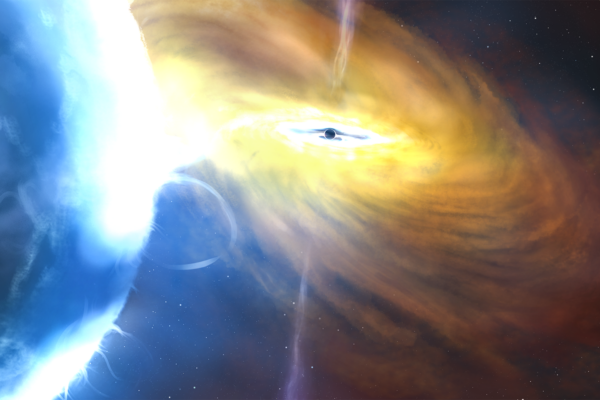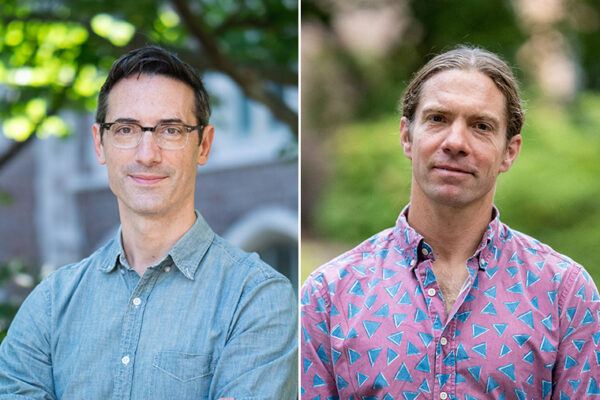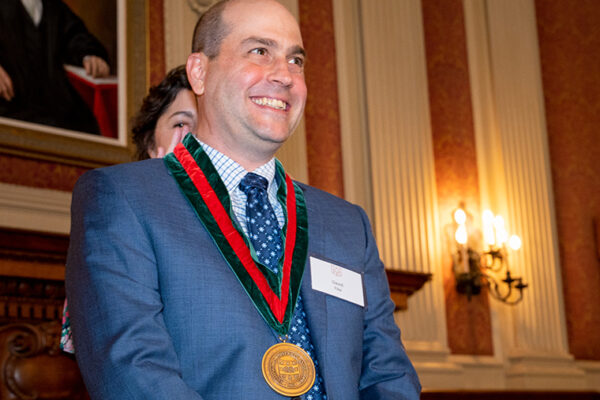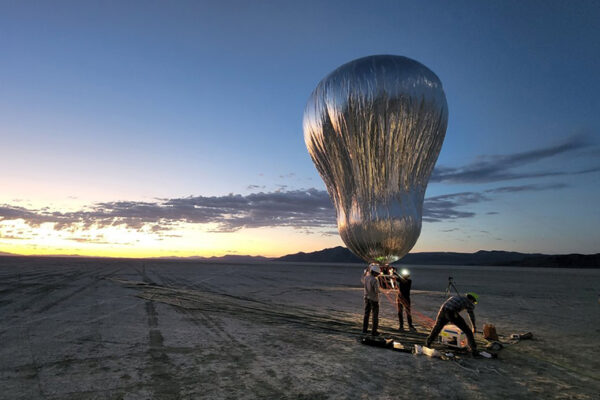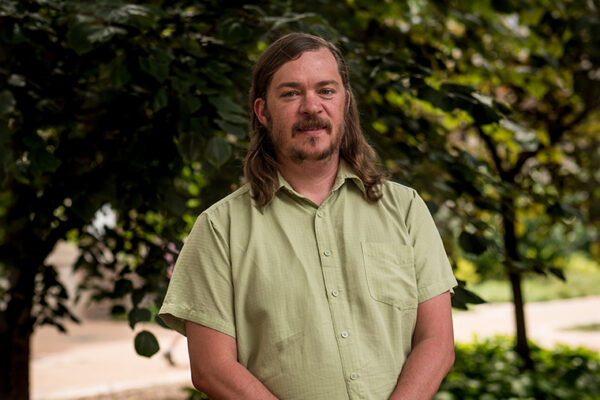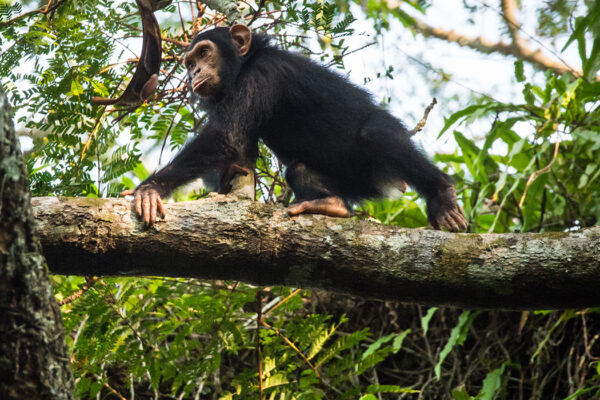An alternate route to semiconductor production
Research from the laboratories of Bryce Sadtler in Arts & Sciences and Rohan Mishra at the McKelvey School of Engineering offers a cheaper and more efficient pathway to semiconductor production using electrodeposition.
Herzog installed as Viktor Hamburger Distinguished Professor
Erik Herzog, a professor of biology, was installed as the Viktor Hamburger Distinguished Professor in Arts & Sciences. His talk was titled “For Whom the Bells Toll: Networked Circadian Clocks and Clock Watchers.”
Thirsty wheat needed new water management strategy in ancient China
Research from the laboratory of archaeologist Xinyi Liu in Arts & Sciences shows that a practice of purposeful water management, or irrigation, was adopted to help cultivate wheat in northern China about 4,000 years ago.
Kranz laboratory biologists report structure of heme transporter
In Nature Communications, researchers in the laboratory of Robert Kranz, professor of biology in Arts & Sciences, shared a new cryo-EM structure and proposed some common mechanisms of heme trafficking in the cell.
Polarized X-rays reveal shape, orientation of extremely hot matter around black hole
New measurements from Cygnus X-1, reported Nov. 3 in the journal Science, represent the first observations of a mass-accreting black hole from the Imaging X-Ray Polarimetry Explorer (IXPE) mission, an international collaboration between NASA and the Italian Space Agency. The lead author of the new study is physicist Henric Krawczynski in Arts & Sciences.
Henriksen, Murch selected as 2022 Moore Experimental Physics Investigators
Erik Henriksen, associate professor of physics, and Kater Murch, professor of physics, both in Arts & Sciences, each will receive $1.25 million from the Gordon and Betty Moore Foundation for their projects over the next five years. Both are founding members of the university’s Center for Quantum Leaps.
Fike installed as Glassberg/Greensfelder Distinguished University Professor
David A. Fike, professor of earth and planetary sciences in Arts & Sciences and director of the environmental studies program and the International Center for Energy, Environment and Sustainability, was installed as the Myron & Sonya Glassberg/Albert & Blanche Greensfelder Distinguished University Professor.
Venus balloon prototype aces test flights
Paul Byrne, associate professor of earth and planetary sciences in Arts & Sciences, is a science collaborator for a prototype aerial robotic balloon, or aerobot, built by NASA’s Jet Propulsion Laboratory and the Near Space Corp.
Carlson to study neuroplasticity, behavioral evolution
Bruce Carlson, professor of biology in Arts & Sciences, recently won a $980,000 grant from the National Science Foundation to study neuronal plasticity and the evolvability of animal behavior.
Study reports first evidence of social relationships between chimpanzees, gorillas
Drawn from more than 20 years of observations at Nouabalé-Ndoki National Park in the Republic of Congo, a long-term study led by primatologist Crickette Sanz in Arts & Sciences documented social ties between individual chimpanzees and gorillas that persisted over years and across different contexts.
View More Stories

